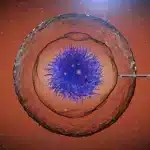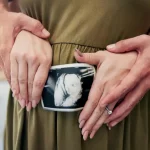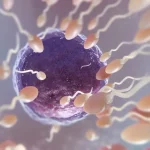
Introduction
Egg donation often results in multiple embryos, especially when donor eggs are of high quality. But what happens to the embryos that aren’t used in the first transfer—or at all?
This is one of the most important and emotional decisions intended parents will face. In this blog, we explain the options for unused embryos after egg donation and offer guidance on legal, ethical, and family-planning considerations.
How Are Surplus Embryos Created?
When eggs are fertilized during IVF:
- A single cycle can produce 5–10 or more embryos
- Only one or two are transferred at a time
- Remaining embryos are typically frozen (cryopreserved) for later use
Cryopreservation allows for future transfers, siblings, or backup plans.
Main Options for Unused Embryos
Long-Term Storage
- Embryos remain frozen for years
- Parents may use them for future pregnancy attempts
- Clinics typically charge $300–$1,000/year for storage
- Requires periodic renewal and decision updates
Embryo Donation to Another Family
- Known as “donation for family building”
- Donated to another couple or individual (often anonymously)
- Requires legal paperwork and donor-recipient matching
- May involve identity disclosure, open-ID, or known donation terms
This is a powerful option for helping others facing infertility.
Donation to Scientific Research
- Embryos are used for stem cell research, fertility treatment innovation, or genetic studies
- No child is created from the embryo
- Highly regulated and approved by ethics boards
- Often chosen by those who wish to support medical progress
Thaw and Discard
- Embryos are removed from storage and respectfully discarded
- Done when families feel they’ve completed their journey
- Some clinics allow families to be present or write a letter to honor the embryos
This is a personal, final decision—sometimes supported with counseling.
[Insert Image: Flowchart of embryo disposition options post-IVF]
Alt text: Diagram of options for unused embryos after egg donation
Legal Considerations
You will be asked to sign an embryo disposition agreement when:
- Creating embryos with a donor
- Completing your IVF cycle
- Storing embryos long term
It outlines what happens:
- In case of death or divorce
- If storage fees are not paid
- If you choose donation or discard later
EggDonors4All works with your clinic and attorney to ensure you understand all your rights.
Ethical and Emotional Factors
You may want to reflect on:
- Your religious or spiritual beliefs
- Your feelings about embryo identity
- Whether you’re comfortable helping another family
- How many children you wish to have
- Whether to keep a genetic connection available
When to Decide?
Some clinics ask you to decide before your cycle, while others allow you to delay until:
- You complete your family
- Your embryos have been in storage for 5–10 years
- You feel emotionally ready
At EggDonors4All, we encourage parents to revisit this decision annually, with counseling if needed.
Testimonials
“We had 3 embryos left after our second child. We decided to donate anonymously. It felt like paying it forward.”
– Kaitlyn & Adam, NYC
“We couldn’t bear the thought of discarding them. Our clinic helped us donate them to research.”
– Mona & Arjun, Toronto
“We froze them with the plan to use them later. It gave us peace of mind during our first pregnancy.”
– Ashley & Marcus, California
Conclusion
Unused embryos carry potential—and responsibility. Whether you preserve them, donate them, or release them, EggDonors4All ensures that your decision is respected, legal, and aligned with your values.
We’re here to support you every step of the way.
📞 Need help deciding what to do with your frozen embryos?
Call 1-212-661-7177 or email info@eggdonors4all.com to speak with a counselor or coordinator.
About the Author
Dr. Kulsoom Baloch
Dr. Baloch helps families explore their embryo options with clarity and compassion. She collaborates with clinics, attorneys, and ethicists to ensure thoughtful and informed decisions.

Dr. Kulsoom Baloch
Dr. Kulsoom Baloch is a dedicated donor coordinator at Indian Egg Donors, leveraging her extensive background in medicine and public health. She holds an MBBS from Ziauddin University, Pakistan, and an MPH from Hofstra University, New York. With three years of clinical experience at prominent hospitals in Karachi, Pakistan, Dr. Baloch has honed her skills in patient care and medical research.






Just gave 277bet1 a whirl and I gotta say, it’s pretty decent! The site’s easy to navigate, which is always a plus. Definitely worth checking out if you’re looking for some fun. Check it out here: 277bet1